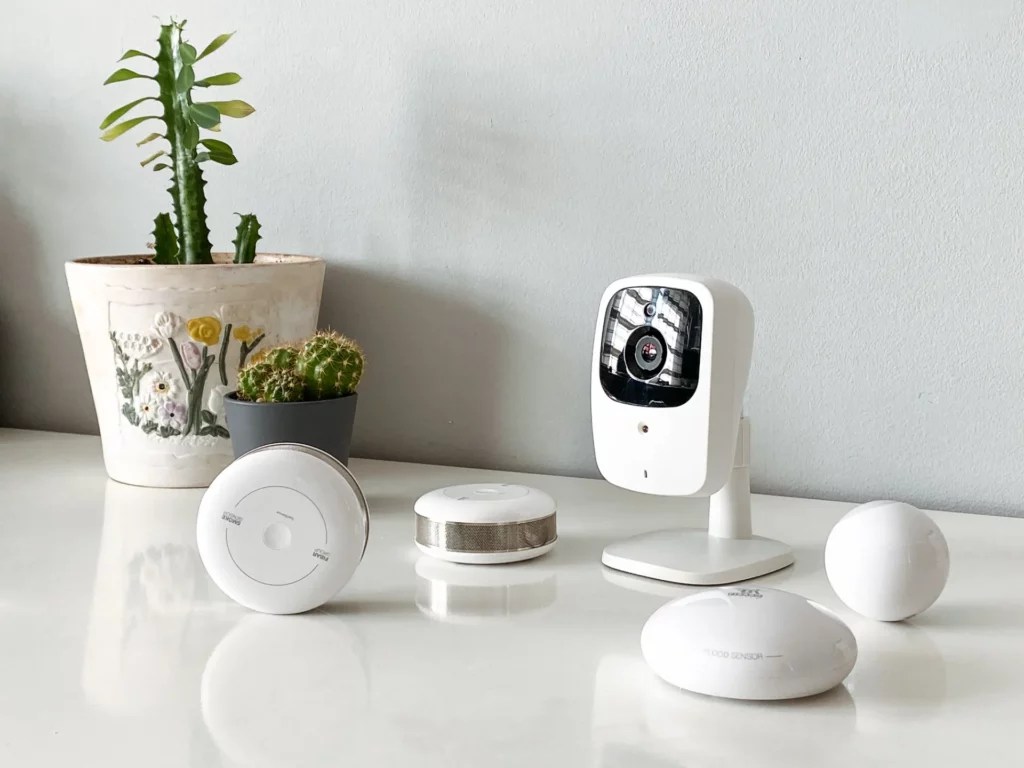As technology continues to evolve, more and more homeowners are turning to smart home technology to enhance their living standards. However, it’s important to note that smart home technology can also increase the value of a property. Integrating smart home technology into a home can modernize it, improve energy efficiency, and enhance its security, which can be a great selling point for potential buyers. Adding smart home tech to a property can be a wise investment for those who want to enhance their property’s value and attract buyers.

How Smart Home Technology Can Increase Property Value
Smart home technology offers homeowners numerous benefits, and it can increase the value of a property in several ways. Let’s explore some of the key benefits that smart home technology provides to both homeowners and potential buyers:
- Energy Efficiency
Smart home technology can help homeowners reduce their energy consumption, resulting in lower utility bills. For example, a smart thermostat can automatically adjust the temperature according to the homeowner’s preferences, leading to lower energy consumption. Smart lighting systems and power outlets can also be programmed to turn off when not in use, reducing energy waste. These energy-saving features can be an attractive selling point for potential buyers who prioritize eco-friendliness and cost savings.
- Convenience
Smart home technology can also make daily tasks more convenient. With a smart home system, homeowners can automate tasks like adjusting the thermostat, turning on the lights, and locking doors. This feature can be particularly appealing to busy professionals and families. For example, if a potential buyer sees that they can control their home’s lighting, temperature, and security using a smartphone app or voice commands, they may be more interested in purchasing the property.
- Security
Smart home technology can also enhance a property’s security by integrating cameras, alarms, and access control systems. Smart security cameras can send alerts when motion is detected, and access control systems can allow homeowners to monitor and control who enters their property. These features can make homeowners feel safer and more secure in their homes, and they can be an attractive feature for potential buyers who prioritize security.
- Integration
Smart home technology can integrate with other devices and services, such as voice assistants and home entertainment systems. With smart home technology, homeowners can control their home’s lighting, temperature, security, and entertainment systems all in one place. This feature can be appealing to tech-savvy buyers who want a fully integrated and connected home.

Smart Home Devices that Attract Buyers
Investing in smart home technology can increase a property’s value and attract potential buyers. Let’s take a closer look at some of the top smart home devices that can make a property stand out in the market:
- Smart Thermostats
Smart thermostats are one of the most popular smart home devices on the market, offering homeowners the ability to control their home’s temperature remotely and automatically adjust the temperature based on their preferences. Smart thermostats can learn a homeowner’s schedule and adjust the temperature accordingly, which can result in significant energy savings over time. In addition, it is also capable of integrating with other smart home devices, such as smart lighting and voice assistants, which can enhance the overall user experience.
- Smart Locks
Another smart home device that provides increased convenience and security is the smart lock. With a smart lock, homeowners can remotely lock and unlock their doors, as well as grant access to guests or service providers without the need for physical keys. Smart locks can also be integrated with other smart home devices, such as security cameras and alarms, to create a comprehensive security system.
- Smart Lighting
Smart lighting systems are another popular smart home device that offers increased convenience and energy efficiency. Homeowners can control their home’s lighting remotely, program their lights to turn on or off automatically based on their schedule and integrate their smart lighting system with voice assistants, such as Amazon Alexa or Google Assistant, for hands-free control.
- Smart Speakers
Smart speakers, such as the Amazon Echo or Google Home, are versatile smart home devices that can provide homeowners with a range of features, such as playing music, setting reminders, and answering questions. They can also be integrated with other smart home devices, such as smart lighting and smart thermostats, to provide voice control over home automation features.
- Smart Security Systems
Finally, smart security systems, including security cameras and alarms, offer homeowners increased security and peace of mind. With a smart security system, homeowners can remotely monitor their homes, receive alerts when motion is detected, and view live or recorded video footage. Smart security systems can also be integrated with other smart home devices, such as smart locks, to create a comprehensive security system.

The Future of Smart Home Technology and Real Estate
Smart home technology is already having a significant impact on the real estate market. As demand for smart home devices continues to increase, these devices will likely become a necessity rather than a luxury, and properties without them may struggle to compete in the market. This could lead to higher property values for homes with smart home technology, and homeowners who invest in these devices may see a significant return on their investment when they sell their properties.
Smart home technology may also change the way that real estate transactions are conducted. With smart home devices providing potential buyers with a more comprehensive view of a property, buyers can make more informed decisions about which properties to consider, and the sales process may be expedited. This could result in a more efficient and streamlined real estate market.
Conclusion
Smart home technology can provide numerous benefits for homeowners and increase the value of a property. By improving energy efficiency, convenience, security, and integration with other devices and services, smart home devices have become increasingly popular in the real estate market. As demand for these devices continues to increase, smart home technology will likely become a major factor in the real estate industry, transforming the way that properties are valued, marketed, and sold. By investing in smart home technology, homeowners can enhance their property’s value and attract potential buyers, while buyers can benefit from the convenience and security that smart home devices provide.

